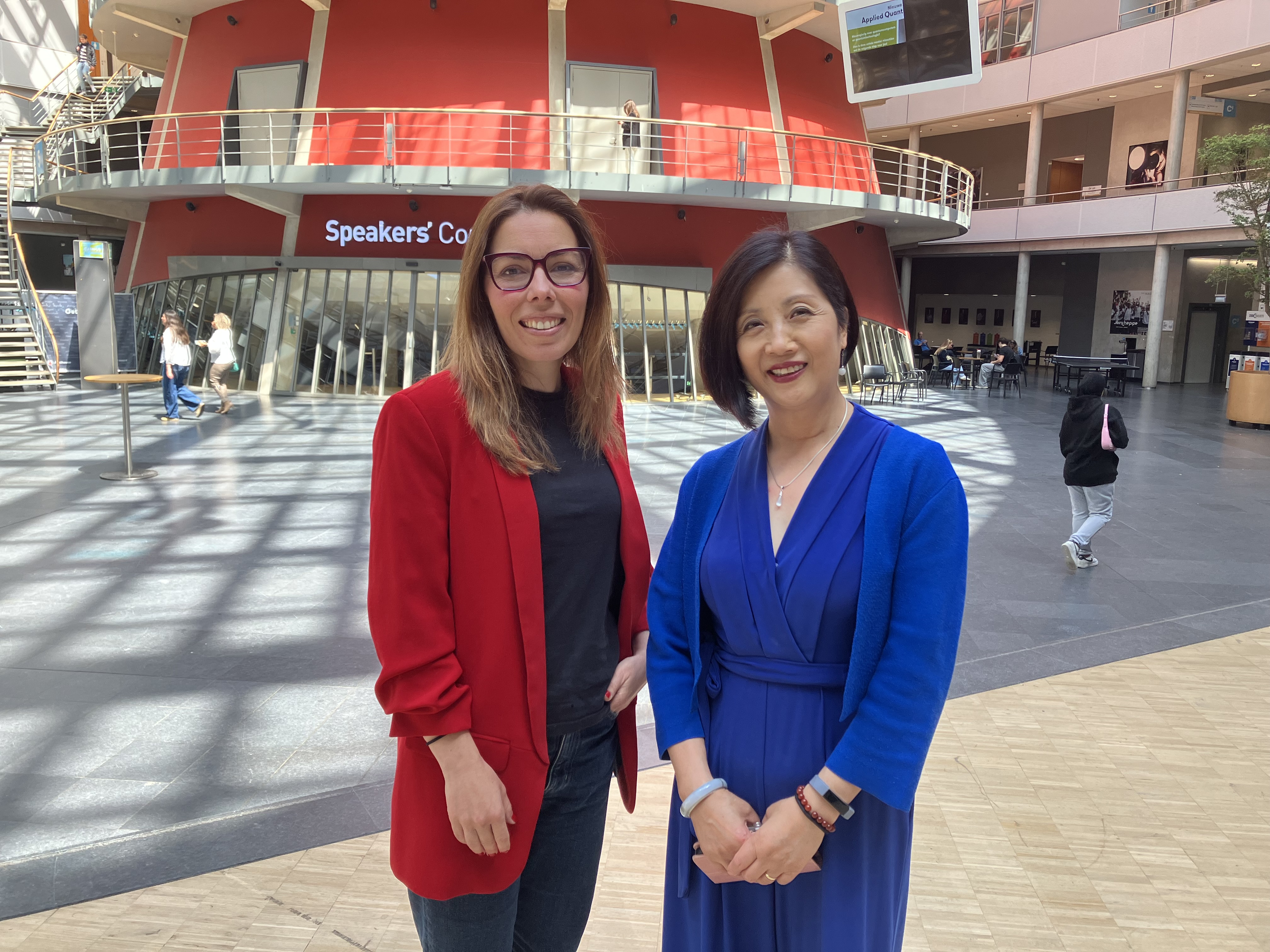The polluter pays: onwards to a fairer food system
4 June 2025
The research group Data-Driven Marketing of The Hague University of Applied Sciences investigated how True Pricing can contribute to a fairer, more transparent and more sustainable food system in the Netherlands.

The polluter pays. Sounds logical, but in our current food production system the exact opposite occurs. The costs to the environment, working conditions or public health remain out of sight. Commissioned by the Ministry of Agriculture, Fisheries, Food Security and Nature, The Hague University of Applied Sciences investigated the scaling up of True Pricing in the Netherlands.
The project was carried out by the Data-Driven Marketing Research Group of the Centre of Expertise Digital Operations & Finance. The researchers conducted extensive literature research, spoke with experts, businesses, policymakers and consumer organisations, and organised focus groups and a co-creation workshop with stakeholders. Led by researchers Maria Angeles Aragon Moran and Dr Hongli Joosten-Ma, The Hague University of Applied Sciences investigated how True Pricing can really make an impact in the Netherlands. What needs to happen to change the food production and consumption system to make it fairer, more transparent and more sustainable?
Offering responsible products
According to Maria, change is desperately needed. “The social impact of food production and the environmental damage that comes with it are not reflected in the price anywhere. You pollute, but don't pay. That must change. We want consumers to be able to choose more consciously and businesses to be encouraged to offer responsible products".
Everyone contributes fairly
True Pricing shows what products really cost when we take environmental impact and social damage into account. This makes the higher price of organic food easier to explain. “But”, Hongli adds, “we want to avoid the bill ending up solely with the consumer. The objective is to change the whole system so that everyone contributes fairly”.
Overview and insight
In the project, researchers from The Hague University of Applied Sciences not only examined the current state of affairs, but also what has already been done in recent years. They analysed more than seventy scientific and policy publications, spoke with businesses like HAK and Lidl, investors like Rabobank, policymakers, consumer organisations, academics and NGOs like the True Price Foundation. They also organised discussions with consumers in focus groups. “This gave us a broad overview of how True Pricing works in practice and where knowledge is still lacking”, Maria explains. "Only by combining all those perspectives together can you really achieve change".
Social contribution
What helped was the background of the researchers. Both come from the business community, with experience in strategic marketing and innovation. “There's a reason we moved into education”, says Maria. "We want to contribute something to society. This project allowed us to use our business skills for a more sustainable future".
Ecosystem
The central finding of the study is that True Pricing is only effective if it becomes part of an ecosystem, in which businesses, consumers, government, investors and knowledge institutes work together. “Farmers who produce under better conditions, for example, should receive better terms for their financing”, Hongli explains. “That is how you reward businesses that do well and more businesses will follow that good example”.
Making transparent
Maria emphasises that the framework they developed can help businesses gain insight into their value chain and the impact of their products. "Why is organic food more expensive? Where can the real costs be found? If we make that insightful and transparent, the behaviour of both producer and consumer can change".
New norm
Although attention to True Pricing is growing, awareness among consumers and businesses is still limited. "That's a problem", says Maria. "Especially as long as sustainable products are more expensive than polluting alternatives. That is the world upside down". According to Hongli, it is therefore crucial that True Pricing does not remain something for the niche market, but becomes the new norm. "The more widely it is applied, the more natural it becomes. And as more businesses join in, the prices of responsible food will eventually drop”.
Fresh perspective
The Ministry appreciated The Hague University of Applied Sciences' broad and thorough approach. The researchers went beyond what was originally planned and spoke with additional experts, including the Consumers’ Association and Rabobank. They delivered high-quality work and presented a practically applicable framework. “The Ministry immediately posted our report with conclusions and recommendations on their website”, says Maria with due pride. “They are now using it as a basis for discussions about follow-up policy. They trust our approach. Our fresh perspective as a relatively new party was exactly what was needed".
Fast-track
The introduction of stricter legislation, such as the CSRD, which requires businesses to make their social impact transparent, including financial consequences, is fast-tracking the application of True Pricing. According to Maria this is the right moment to follow through. "True Pricing is a powerful tool that can really help businesses move forward. If we invest in cooperation and transparency now, sustainable production becomes the new normal. And we ensure that it is not the consumer but the polluter who pays”.
More information
- Read the research report: Upscaling True Pricing Impact in the Netherlands
- Read more about the research group Data Driven Marketing
- Read more about the Centre of Expertise Digital Operations & Finance
- Contact the researchers: Maria Angeles Aragon Moran en Dr. Hongli Joosten-Ma